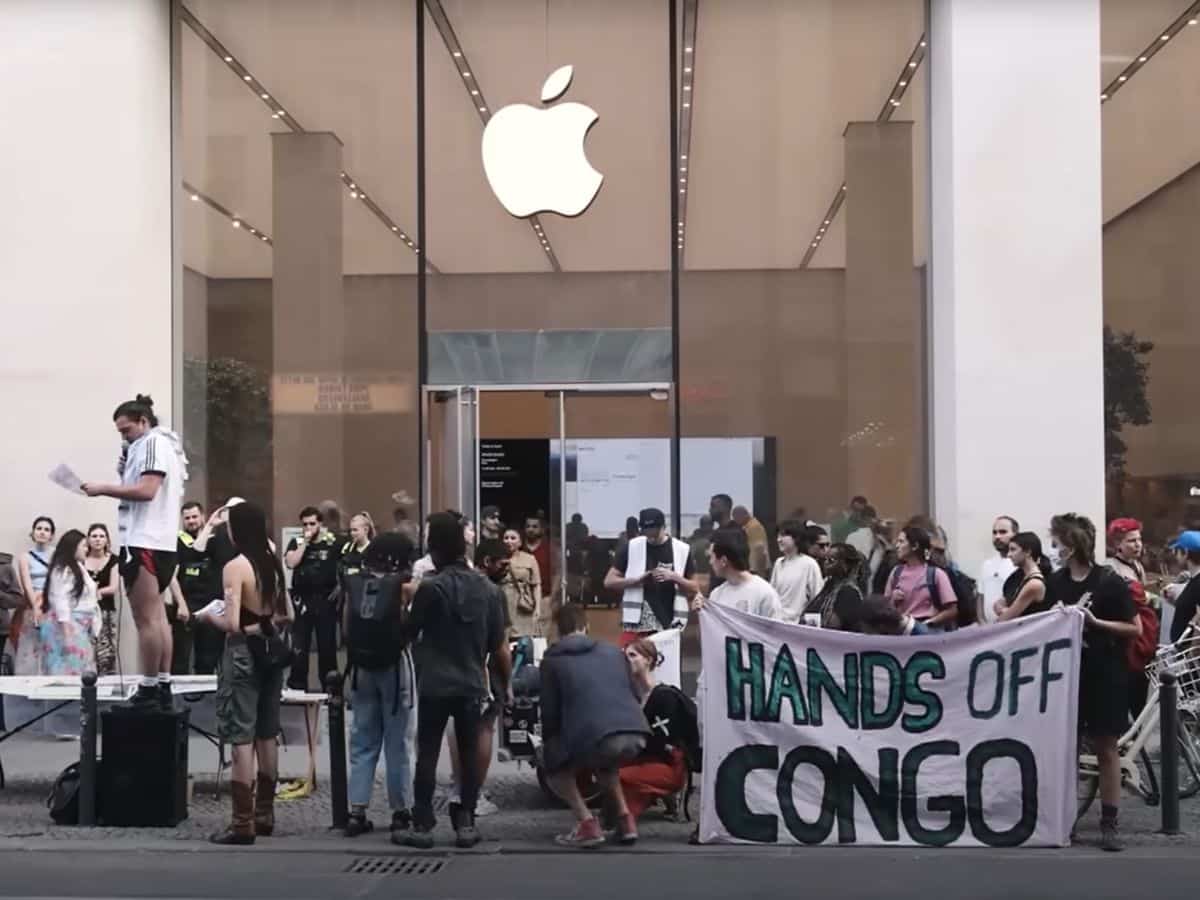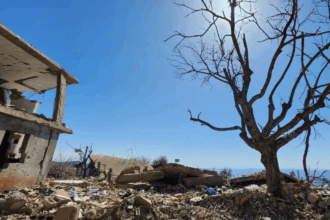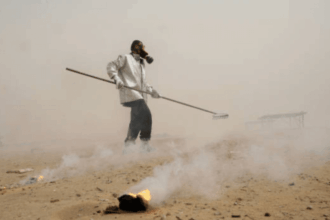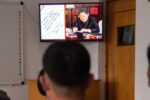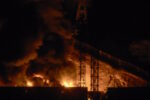On Friday 19 September, groups standing in solidarity with the Congolese people against blood minerals, human rights abuses, and genocide will bring dissent and disruption to Apple’s front door. Coinciding with the company’s release day for the new iPhone 17, Stand For Congo UK, Friends of the Congo, and other groups, will pitch up outside the Apple Store on Regents Street in London.
Together, they will call on the public to boycott Apple. And crucially, they’re asking the public to join them in resisting exploitation in the Democratic Republic of Congo (DRC).
DRC’s critical mineral scramble: a colonial cocktail of human rights abuses and conflict
The DRC is the world’s largest producer of cobalt – containing more than half the world’s reserves of the critical mineral. In 2024, the DRC produced 220,000 metric tons of cobalt, accounting for approximately 84% of global production.
It’s also a major producer of coltan, the main ore of tantalum, as well as tin, and tungsten ores. Notably, these three together make up the so-called ‘3T’ minerals – prized for their use in electronic devices like computers and mobile phones. The DRC generates at least 40% of the world’s supply of the key tantalum ore, and significant amounts of the other two minerals.
As a result, the DRC has been at the centre of big companies’ global scramble to plunder these mineral resources. The result has been the fueling of violence and genocide in central African country. Armed groups have fought over mines and natural resources to fund their operations. They’ve left a harrowing trail of death and destruction in their wake.
As the Business and Human Rights Resource Centre has detailed:
The DRC government, civil society and UN experts report that large quantities of tin, tungsten, and tantalum (known as the 3T minerals) exported from Rwanda as “conflict-free” in fact originate in conflict-affected areas of the DRC and are illegally smuggled across the border. This trade is reportedly linked to the financing of armed groups and serious human rights abuses amid the ongoing conflict between the government and the M23 rebel group, allegedly backed by Rwanda, for control over the mineral-rich Kivu provinces.
Toxic pollution decimating Congolese communities
What’s more, alongside violent land-grabs for these conflict minerals, the mining itself is threatening the lives and livelihoods of local communities.
In 2024, non-profit RAID released a damning report on the devastating toxic pollution toll cobalt mining was having on communities and the environment in the DRC. It has contributed to staggering levels of gynecological and reproductive health problems for women and girls in communities living nearby to the world’s largest cobalt mines. Plummeting crop yields had decimated people’s incomes. The confluence of medical care costs and falling incomes had led to ever declining living standards. Communities have scrabbled to afford food, education costs, and healthcare as a result.
Meanwhile, mining companies are exploiting Congolese mine workers with paltry pay amid dangerous working conditions. A separate report RAID and Kolwezi-based Centre d’Aide Juridico-Judiciaire (CAJJ) put out in June highlighted companies paying workers well below living wage. It noted how this was leaving them:
unable to afford food or education for their children
It also underscored the unsafe working conditions, with workers describing:
being placed in highly dangerous situations, such as climbing scaffolding without a safety harness or being exposed to toxic substances, but said they refrain from speaking out for fear of losing their jobs.
And tech companies like Apple are complicit actors in this corporate colonial cocktail of abuse.
Apple: awash with lawsuits for conflict mineral complicity
In 2019, 13 Congolese families named Apple among a series of companies in a lawsuit over forced child labour in DRC cobalt mines. Their children had died or suffered severe injuries working in the dangerous conditions at UK mining company Glencore and Chinese cobalt firm Zhejiang Huayou Cobalt’s mining operations. The companies supplied its critical minerals to Apple and other tech firms like Google, Tesla, Microsoft, and Dell. Ultimately, a US court dismissed the case in 2021. And, in March 2024, the court of appeal refused to hold the companies to account.
However, in December 2024, Apple was under fire again for its sourcing of conflict minerals. This time, the DRC filed criminal charges against the tech giant in France and Belgium. But in February 2025, a Paris prosecutor also dropped this case. The DRC’s justice minister is planning to appeal.
Predictably, Apple has repeatedly refuted that it sources these critical minerals from companies committing human rights abuses. In its Conflict Minerals Report 2024, the company said that:
In response to reports of escalating regional conflict, as well as smuggling and illegal taxation, in June 2024 Apple issued a notification to its suppliers to cease the sourcing, directly or indirectly, of 3TG for Apple parts and products from the DRC and Rwanda.
However, big tech companies like Apple consistently fail to properly map and monitor their supply chains for rights breaches. In 2022, research and campaign group Global Witness unveiled that Apple was relying on a supply chain due diligence scheme that militias in the DRC were using to launder conflict minerals. The DRC’s lawyers have also argued that while its decision was welcome, it would need to be:
verified on the ground with facts and figures to support them.
Stand up for the Congo against Apple’s sales ‘stained with blood’ on iPhone 17 launch day
In September 2024, protest group Apples Against Apartheid spearheaded a global day of action against the iPhone 16’s release.
Now, as the company prepares its next major product release, campaign groups will stand up to Apple once more:
You can join the Boycott Apple campaign in London at Apple’s Regent Street store from 5pm on Friday 19 September as the iPhone 17 is launched. Stand For Congo and its partners are calling for people to “take a stand” against the company to:
expose their complicity in human rights abuses.
Vitally, the boycott seeks to disrupt:
their sales, built on the backs of Congolese people and stained with their blood.
Featured image via the Canary
